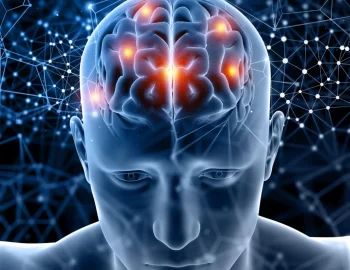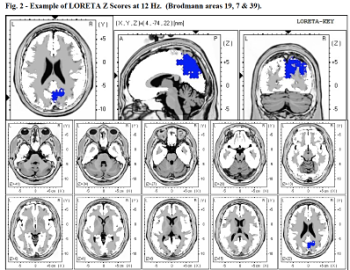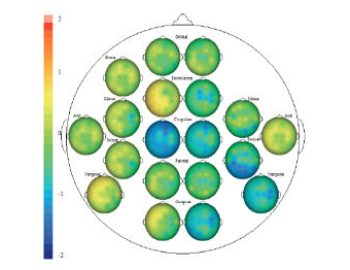Sleep Disorders

What are Sleep Disorders?
Sleep is what recharges the brain and gives you the ability to function efficiently. Not getting enough sleep or conversely, getting too much sleep, can impact your brain function and physical health significantly. Sleep Disorders are a group of conditions affecting millions of people worldwide, impacting a person’s ability to get a good night’s rest. If you’ve yet to be diagnosed with a sleep disorder, you’ll want to note that signs include excessive daytime fatigue, irregular breathing during sleep, and difficulty falling asleep.
Symptoms of Sleep Disorders
- Reduced eye contact
- lack of response to their name
- lacks social communication abilities
- mood fluctuations and aggression
- repetitive speech and behavior
- sensory processing challenges (tactile, auditory, visual)
- learning difficulties
- disengagement and indifference
- zoned on (high focus) on one item for a prolonged time
- lacks interest in playing with other kids
- lack of understanding of social boundaries
Start your mental health journey!
Sleep Disorders
- Insomnia
- Hypersomnia
- Sleep Apnea
- Narcolepsy
What is Insomnia?
Insomnia is a sleep disorder characterized by the inability to fall asleep or stay asleep throughout the course of the night. Common causes are stress, depression, anxiety, or other emotional or psychological causes.
Symptoms of Insomnia:
- Inability to fall asleep
- Inability to remain sleeping through the night
- Fatigue
- Chronic tiredness
- Exhaustion
What is Hypersomnia?
Hypersomnia is a sleep disorder characterized by extreme tiredness, in which an individual has difficulty staying awake during the day, even if the individual had a long sleep. Hypersomnia affects one’s memory, attention, and focus. Common causes are problems in brain systems that affect sleeping and waking functions.
Symptoms of Hypersomnia:
- low energy
- irritability
- anxiety
- restlessness
- memory difficulties
- the decline of attention and focus
- loss of appetite
What is Sleep Apnea?
Sleep Apnea is a common condition that can affect both children and adults. It is characterized by the cessation of breathing during sleep. Individuals with Sleep apnea can be negatively impacted by a variety of neuropsychological and psychological side effects. It is uncommon for an individual with sleep apnea to remember the pauses of their breathing during sleep. Hence sleep studies are required for a diagnosis of this condition.
Symptoms of Sleep Apnea:
- Daytime sleepiness
- Unrefreshing sleep
- Headaches
- Frequent nighttime urination
- Snoring
- High blood pressure
- Irritability
- Diabetes
- Depression
- Anxiety
- Low testosterone (in males)
Types of Sleep Apnea:
1. Central Sleep Apnea (CSA)
Central Sleep Apnea (CSA) is caused by the failure of the brain to send a signal to respiratory muscles that needed for the initiation of a breath. The cessation of the breath can last a few seconds to a few minutes which usually results in significantly low blood oxygen levels during sleep
2. Obstruction Sleep Apnea (OSA)
Obstructive Sleep Apnea (OSA) is characterized by the upper airway collapsing due to the relaxation of soft tissues in the back of the throat during sleep. This is different than Central Sleep Apnea (CSA) as the problem does not reside in the brain. However, the obstruction in the upper airway still prevents a sufficient amount of oxygen reach to lungs, brain, and the rest of the body
Treatment
Fortunately, Sleep Apnea is very treatable. However, if left untreated it can lead to serious life-threatening conditions. A Sleep Study can determine what treatment if best for an individual with Sleep Apnea.
At Elumind we are pleased to partner up with Advanced Sleep Clinics, to help you with sleep apnea difficulties. Advanced sleep clinics present the most comprehensive and advanced sleep apnea diagnostic tools and treatment plans in BC with multiple locations to serve you better. For more information please visit their website at www.advancedsleep.ca As a director of the clinic, Dr. Edalati endorses Advanced Sleep Clinics as he has used their services to help him sleep more restfully.
What is Narcolepsy?
Narcolepsy is a sleep disorder characterized by extreme tiredness, sleep paralysis, hallucinations, and episodes of involuntarily falling asleep throughout the day. The causes of this sleep disorder are unknown, but for some, it’s been found they may have low levels of the chemical hypocretin, which regulates your REM cycle and awakeness. It is also likely that genetics plays a role, even though the transferal rate from parent to child is 1%.
Symptoms of Narcolepsy
- chronic tiredness
- random and uncontrolled falling asleep
- muscle loss
- sleep paralysis
- hallucinations
Most people experience sleep impairments due to stress, busy schedules, jet lag from travel, or other external influences. But when they persist, it may be an indication of a sleep disorder. A sleep disorder can also be a symptom of another medical or mental health issue, so as appropriate medication or treatment is in place, the disorder does too.
How we can help?
To complement traditional medication and therapies, Elumind will provide you with therapies of Biofeedback, Neurofeedback, and Clinical Hypnosis. These treatments help identify the root of the problem and then aid by focusing on why sleep patterns are disrupted and how they can be refocused. Neurofeedback helps to restore your natural sleep patterns through advanced qEEG technology and by directing brainwave activity. This will help to improve the natural transition of your central nervous system from a hyperactive state to a resting state. Biofeedback therapy helps you to regulate and control your body’s own physiological functions so you can reduce the nervous excitability that’s getting in the way of your sleep. Clinical hypnosis can help those with sleep disorders by helping them – their mind and body to relax and let go of the anxieties and thoughts that may be preventing them from sleep.

Biofeedback
Learn how biofeedback therapy allows you to control and regulate your body’s physiological functions more effectively.

Neurofeedback
Discover how neurofeedback training can improve your cognitive function and optimize your brain.

QEEG Brain Mapping
QEEG is a quick and efficient tool that allows us to gather data and diagnostic information on your brain and identify both strengths and deficiencies in your brain networks.



